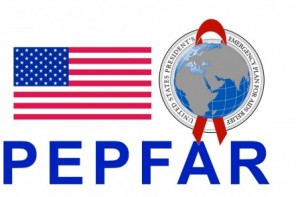Tom over at aviewfromthecave and I have been having a bit of blog banter over the last 24 hours, sparked by a Washington Post article about a do-good couple giving bikes to kids in Tanzania. Tom’s critique of the article, with some very salient points journalists who cover foreign aid should keep in mind, is here. My riff, which is also partly a coda to my post on advocacy, is here. Tom’s reply to my riff is here… and so it goes.
One thing that comes up in all of this is the question of how aid is used: A sweet American couple gives bikes to kids so they can ride them to school. But let’s say — and he and I agree this is pretty likely — the kids don’t ride the bikes to school at all. Let’s say their sisters use them to fetch water, or their parents use them to get to work, or…ad infinitum. Is that okay?
There’s been some attention to studies and other experiences that showed, apparently to our surprise, that if you give the poor money, they use it “well.” I think these were natural disaster situations, not chronic poverty situations, and it’ll take me a bit to dig up the links, which I’ll add. But even if they don’t?
I make some private contributions to individuals in different places, for things like school fees. I know that sometimes that money does not go to school fees. But the kid I’m worried about is still in school. So…is that okay? If I go to the market in Kigali, I can (still) buy vegetable oil in big tins stamped “USA” — a ‘gift’ of the American people. Is this okay?
The poor are needy. The poor are also creative. Some of the poor, like some of all people in all income brackets everywhere, are “lazy” and some of them are entrepreneurial. Yes, we all agree we need accountability, especially with so much money at stake, but complex and lengthy procurement and implementation rules seem to me to signal that we’re more worried about the moral hazard of aid than we are about encouraging the entrepreneurial-yet-needy to use aid creatively.
So, my question: Is this a problem? Who should decide how aid is used?




I will jump in here to make the first comment (fitting as it is you and I who have been back and forth). To me the expectations can matter a lot. For example, you highlighted your personal sponsoring of some people. It appears that you are aware that the money is used for other things, but seem happy with the fact that it helps to ensure that the girl is attending school. For that, it is more simple because you have your own expectations out of the donation.
What seems to come out of this your bigger question: ‘who should decide how aid is used?’
We all can agree that the recipient matters, but the fact is that donors matter too. If organization x tells me that my money will go to buy chickens in a specific African village, I expect that to happen. As is often the case, this does not really happen. In this example, I do not think it would be unfair if I was to be upset that my money was not being used the way I intended and was told. Why is it so hard for an org to fess up and let a donor know when a changed needs to be made? Maybe it is too complex, but that would certainly help things along and reassure donors that the money is being used in the most effective way possible.
To me, there seems to be two problems; uninformed and misinformed donors. Organizations are not always completely truthful as they need donations to continue their work. Donors believe these organizations to be trustworthy because they are charitable. That is not to say that most or even many organizations are corrupt, but it is to imply that many will take some freedoms (ie. Kiva, Heifer Int’l, etc). That does not excuse anyone from not doing the necessary research when considering a donation. If this is correct the solution is for organizations to be more upfront with what is really happening with money donated and donors do their homework.
The recipients should always matter most, but how is aid best distributed? The ‘mommy knows best’ solution furthers paternalism and handouts can do much the same while creating dependency. I don’t really have an answer to that, but I hope that it highlights the fact that it is extremely complex. So in the end, I am taking the middle by saying that everyone has some sort of voice in the matter because they are taking part in the process.
I don’t know if that is much of an answer. I hope other people share some ideas as well.
I think we have to be a little careful about distinguishing between private acts of charity and aid money. If some old couple from Virginia wants to raise money to give bikes to kids in Tanzania, well hooray for them! What else would that money be getting spent on? Subscriptions to Reader’s Digest? It would certainly be better if they would spend their time and energy raising money for bednets or something, but bikes are better than nothing. Raging against those people is a waste of time.
Aid isn’t the same. There’s only so much money your government is going to spend on foreign aid, and only so much time and energy that will go into figuring out how it’s going to be to spent. It’s extremely important that we not spend it on things like bikes for kids in Tanzania, because that’s money that we could otherwise be spending on something worthwhile, not just subscriptions to Reader’s Digest. Raging against that is far from a waste of time.
If you can buy US food aid in the market in Kigali, then some of the resources we used to get that food aid there were wasted and could have had a greater impact if we’d spent them in some other way. If an old couple from Virginia is wasting resources, that’s OK. If the government is wasting aid money, no, that’s not OK.
I’m always a huge fan of you, Quite Griot, and super glad to have you chime in here.
First, totally agree that privet acts of charity and aid money aren’t in the same category. But I think they both can benefit from the kind of, “what are we ok with?” analysis.
As in: I don’t agree with you that”if [I] can buy US food aid in the market in Kigali, then some of the resources we used to get that food aid there were wasted and we could have had greater impact if we’d spent them in some other way.” I don’t necessarily disagree, but I think there is a need prove three things: 1) that there are other things that would have been done with the money, and 2) that those things would have had greater impact that individuals selling “USA” vegetable oil, and 3) that there is not benefit in individuals creating a private market in the good that is donated USA vegetable oil. I think that market might make a differences in the places where it exists. Just a hunch.
I’m torn on this debate, but so glad that it’s going on. I see the same dynamics happening in my community (in Cambodia) – support from individual foreigners for individual youth, small programs that benefit only a few and maybe aren’t having the intended impact, etc. But the value of the personal relationships is something I don’t dare to try to measure. In our case, it’s also worth noting that the people helping individuals and very small programs are also usually donating lots of money to our larger programs that meet DM&E standards.
Also, here’s a link about the success of Brazil’s CCT program: http://www.economist.com/node/16690887?story_id=16690887
Thanks for writing!
No matter how much we (aid workers) may dislike the fact, and no matter how much we try to change it or at least make it less obvious, there is a power differential between us and “our beneficiaries.” They feel it very keenly. I cannot speak for them, but I would be willing to bet that in many (MANY) cases, what we call “participatory process”, they call “negotiation.” We have the ability to provide resources that the poor (usually) genuinely need. It take it as granted that they will do their best to have us provide those resources on, or as close as possible to, *their* terms.
Whether or not it is a problem, really depends – in my mind – on what our assumptions and desires and needs are when we enter into that participatory process/negotiation.